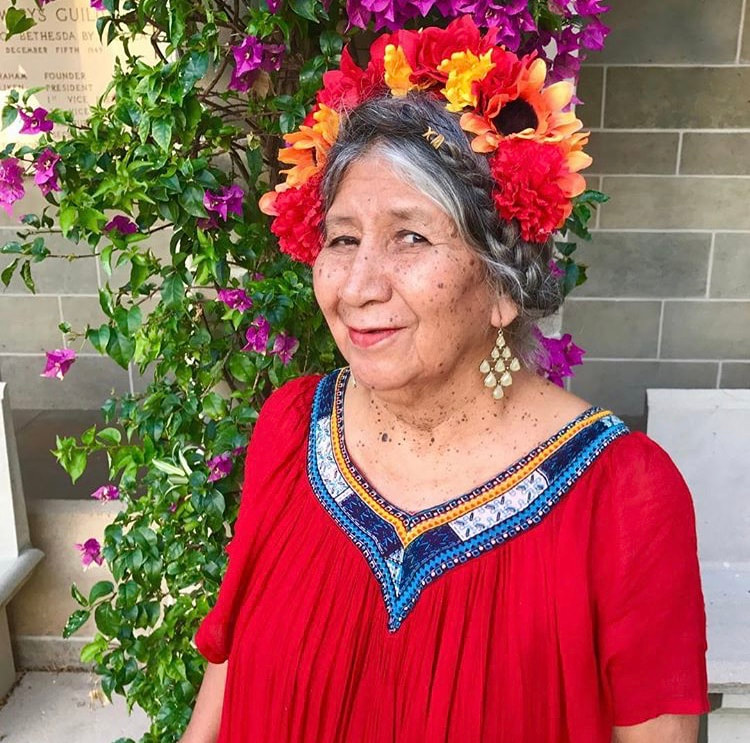|
When we put out the call for Las Musas to come together for Black Lives Matter statement, madrina Lisa Alvarado (Poet. Chicana. Italian. Jew. Finding God in nature. Aleyo. ) sent us the the poem below to share with you all! In her words, she offers this because Black brothers and sisters are our family. ANTHEM by Lisa Alvarado The poem is a blessing. The poem is contraband. The poem is Molotov cocktail. The poem is balm. The poem is napalm. The poem is a slap. The poem is a kiss. The poem is a curse. The poem is revelation. The poem is revolution. The poem is Sunday church supper. The poem is the lash. The poem is a firebrand. The poem is The Underground Railroad. The poem is a night stick. The poem is someone who will not break. The poem is the tree never bearing strange fruit. The poem is a rope that spells freedom. The poem is wet feet and the Rio Grande. The poem is the back of a truck. The poem’s other name is coyote. The poem is La Migra handcuffed to a chair. The poem is papeles. The poem is a wall that keeps crumbling. The poem es una poema. The poem is a broken swastika. The poem is a shredded brown shirt. The poem is a white hood with no eyes. The poem is yelling Basta ya! The poem spits out bullets.
The poem is a panhandler. The poem is a Walmart cashier. The poem is a hotel maid. The poem is a factory worker. The poem is a time clock. The poem is a paycheck. The poem is child labor. The poem is a striker. The poem is an eight-hour day.
2 Comments
When I was a teenager, there were two things I longed for most: my own room, and to somehow change my roots from Mexican to Italian. I got my wish for the former in my university dorms at the age of twenty-two; the latter, not unexpectedly, was impossible to achieve. Still, I tried.
I’d long been obsessed with Italian food, spending my free time trying to master dishes, especially lasagna. When my friends went on a trip to Rome, I thought I would die from jealousy. I practically crawled into their laps when they returned, sighing with longing at their descriptions of ancient stone ruins, endless glasses of blood-red wine, and the cutest boys they’d ever seen, each one flirtier than the last. I knew I was meant to be Italian, somehow. I was mixed up from birth, or had a secret parent, or maybe a variety of past lives to account for my connection. I imagined myself a peasant, gathering sun-warmed grapes on a vineyard, or a baker, crossing each loaf of bread for protection before it entered the fire. When Eat Pray Loveby Elizabeth Gilbert was published, I was almost twenty, and I read about Gilbert’s travels in Italy over and over again. I hosted dinner parties centered around pasta, I brought home books on Italian cooking, on the language, on the history. It's clear to me now, that although Italy has a rich and gorgeous history and culture, my attraction, my longing for my identity to be a part of it in some way was centered in the idea that who I was—Mexican American—just wasn’t enough. All my life, I’d heard ‘Mexican’ as synonymous with an insult. People made jokes on our height, our food, the volume of our voices, the ways we celebrate, the ways we mourn. My mother told us stories of her childhood: being called spic by white men while walking on the street. How my grandparents, who were migrants, were forced to used separate facilities in their travels. How they encountered signs that proclaimed,No Mexicans allowed. I remember, as a teenager, pronouncing empanada at a Mexican restaurant, and my friend’s white father becoming intrigued. “Say it again,” he told me. “Again.” As though I were a circus animal, saying things correctly for his entertainment. I remember one of my sister’s white friends, making faces over my mother’s enchiladas, cheesy and bubbling from the skillet. She took one bite and ran to the trash to spit it out. I remember my grandmother and her internalized racism, refusing to call any white man or woman by their first names, even at their insistence. |
Las Musas SpeakWelcome to our blog! Archives
July 2024
Categories
All
|



 RSS Feed
RSS Feed